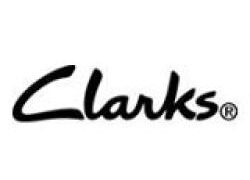
Therefore, people struggling with drug abuse problems need a combination of treatments to manage their addiction. In the same light, people in the early stages of drug recovery need professionally trained therapist to help them overcome their addiction. Keep reading our side sober living vs rehab by side drug rehab vs sober living comparison review, to find out everything you need to know about both of these substance abuse treatment facilities. Inpatient rehab is often the chosen method of treatment for someone who is addicted and it’s often the most effective solution available. Unfortunately, many people mistake sober living for residential care and this is not the case. I believe that it would not be too difficult to screen these facilities to see which ones are open to the possibility of working with a team to provide an alternative to residential rehab, and which ones are not.
Specialized Dietary and Wellness Programs

Pairing rehab with sober living can make the recovery journey smoother and more effective. It’s like taking what you’ve learned in rehab and practicing it in real life, but with support still close by. The cost of a sober living home varies depending on factors like location, staff support, and amenities. Prices typically range from $500 to $2,000 per month, with some homes offering single rooms at higher rates. Newsweek’s ‘America’s Best Nursing Homes’ ranks Kendall Lakes Health and Rehabilitation Center among Florida’s top 20 nursing facilities. The 150-bed center provides both short-term rehabilitation and long-term care services, earning high-performing ratings for its clinical outcomes.
Is sober living in a facility better than traditional rehab?

Patient feedback consistently praises staff attentiveness and rehabilitation effectiveness. The facility provides specialized mental health training for healthcare staff, combining academic rigor with comprehensive elder care delivery. The Palace’s specialized memory care and rehabilitation programs demonstrate its comprehensive approach to elder care. Miami Shores Nursing and Rehabilitation Center operates from 9380 NW 7th Avenue, focusing on specialized care programs and cultural sensitivity. The for-profit facility’s quality care commitment earned multiple accreditations since opening in 1999.
Sober Living Vs Rehab: Differences and What to Expect

Support meetings, such as Alcoholics Anonymous, narcotics anonymous, smart recovery, or celebrate recovery, are very effective. A Suboxone friendly sober home can make all of the difference in the success of a Suboxone patient. As part of our evidence-based methodologies, we provide detoxification, counseling, skills training, holistic therapies, and aftercare services. The programs are flexible and can be customized to fit your unique situation. If you’re looking for substance misuse or inappropriate use treatment that will help you reclaim your future, reach out to us today. Most sober living facilities offer a three-month program, but some may offer longer or shorter stays, depending on a person’s recovery progress.
- While these programs are extremely helpful early on, they generally only last a few weeks to several months, and it is crucial to understand that they do not “cure” addiction.
- Choosing to go through the steps of walking away from addiction requires great strength and determination.
- Sober living programs are meant to help you avoid relapse during early recovery.
- Sober living opportunities offer a sense of security and support when early in sobriety.
The cost of nursing home care in Miami typically ranges from $300 to $500 per day, or $9,000 to $15,000 per month for a private or semi-private room. However, prices can vary significantly depending on the facility’s amenities and level of care provided. You can use Medicare’s Care Compare tool online to search for and compare nursing homes in Miami. This tool provides detailed quality ratings, staffing information, and inspection results for Medicare-certified facilities. Quality metrics highlight superior outcomes at facilities like Riverside Care Center and Jackson Memorial.
The goal of rehab is drug addiction to help a person understand the underlying reasons for their substance use and develop the skills to maintain sobriety. It’s important to remember that just because you complete a rehab program doesn’t mean that you’re completely cured of your addiction. In fact, many people fall prey to relapse simply because they jump into trying to return to a “normal life” too quickly. Sober living homes also have a house manager on site throughout the day/week to provide peer support and additional guidance as needed. The purpose of rehab centers is to provide their patients with as much support as possible on their journey to recovery.

Partnerships with Miami Medical Institutions
Residents may choose to use an SLH to transition from the structured, therapeutic lifestyle of rehab to the outside world. They provide a safe, alcohol and drug-free space for residents, enabling them to feel comfortable as they re-engage with wider society. This includes medical detox to manage withdrawal symptoms, one-on-one counseling, group therapy, and often treatment for co-occurring mental health conditions. With this comprehensive approach, rehab aims to lay a strong foundation for lasting sobriety. Are there nursing homes in Miami that cater to specific cultural or language needs?
Admission Process and Waiting List Information
- Rehab centers employ medical professionals like doctors, nurses, and psychiatrists.
- Registered nurses, certified assistants, and specialized therapists deliver targeted medical care.
- Navigating the world of addiction recovery can feel overwhelming, especially with so many options available.
- This difference reflects the level of care provided, with inpatient rehab offering round-the-clock support and housing, while outpatient programs focus on flexible therapy sessions for those living at home.
- If you’re in the early stages of recovery or struggling with severe addiction, residential treatment is likely the best fit.
Sober living is a transitional housing option that offers a substance-free environment, promoting independence and accountability for individuals in recovery. Sober living and rehab are vital components of ending addiction and initiating recovery. Detox and rehab begin the recovery process and extend over periods lasting up to 90 days. Detox rids the body of the toxic substance(s) while addressing withdrawal symptoms through a medically monitored process. Rehab introduces evidence-driven therapies to provide new positive and healthy coping mechanisms while delving into the personal components of the addiction. That is why joining an addiction treatment facility is often the best first step in getting sober.







No Comments
Leave Comment